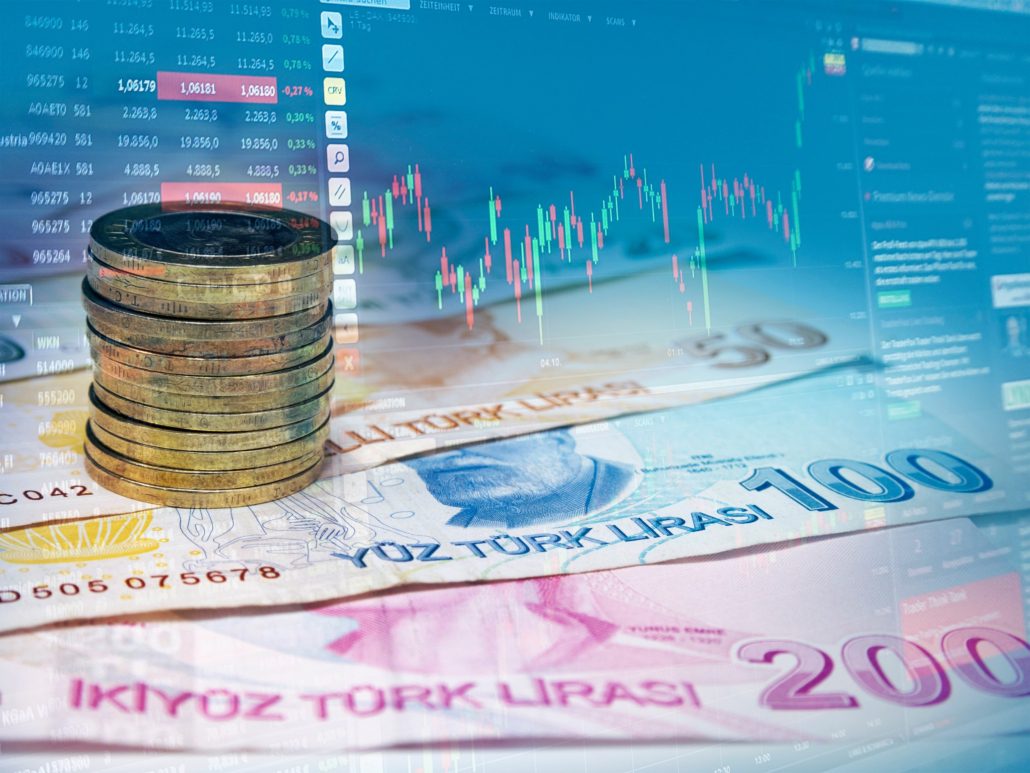#EconomicPolicy
#EconomicPolicy76
Contact
Refet Gürkaynak
refet@bilkent.edu.tr
Burçin Kısacıkoğlu
bkisacikoglu@bilkent.edu.tr
Sang Seok Lee
sang.lee@bilkent.edu.tr
Unorthodox Monetary Policy Leads to Rising Inflation and a Depreciating Currency
A cautionary tale from Turkey
When the Central Bank of Turkey began cutting interest rates in the face of rising inflation in the autumn of 2021, it resulted not only in a sharply depreciated lira and skyrocketing inflation, but also to higher longer-term interest rates for government bonds, consumer loans and other market rates. That is the central finding of a new study by Refet Gürkaynak, Burçin Kısacıkoğlu and Sang Seok Lee of Bilkent University in Ankara.
As is currently being demonstrated by central bankers in the Eurozone and the United States, conventional monetary policy raises interest rates to tackle inflation. In contrast, what might be called the experiment in unorthodox economics by the Turkish policy-makers – keeping interest rates artificially low since 2010 – has led, just as theory predicts, to higher inflation, unanchored inflation expectations and a loss of the central bank’s ability to control longer-term interest rates.
The experience ‘presents a cautionary tale of the dismal effects of ignoring basic macroeconomics’, the researchers conclude – one that might be a warning to public authorities elsewhere in the world that limit their central banks’ ability to pursue price stability.
More
The UK has recently had to lean on the Bank of England to save the government from itself. Saving governments or financial systems often requires lower interest rates than would materialise otherwise. What happens if a country does not allow its central bank to set interest rates freely? Turkey provides a cautionary tale.
The new study shows that the Central Bank of Turkey has been keeping interest rates artificially low since 2010. This has resulted in a deep depreciation of the lira and skyrocketing of inflation, currently at 83%. Turkey has been lowering interest rates for about a year now, while almost all other countries are raising policy rates to combat the surge in inflation. The authors show that the low interest policy has a much longer history, and this had led to a loss of control over inflation much earlier.
One salient feature of the study is its use of the Turkish experiment to test predictions of what economists call the ‘canonical model’, the standard framework for assessing the working of monetary policy. That framework, the so-called New Keynesian model, predicts that inflation will become unanchored and the local currency will depreciate when monetary policy is weak, but such a level of weakness had been rare in the data to date, making the prediction untestable.
The Turkish case provides a clear experiment where cause and effect can be examined. The finding that the New Keynesian model’s predictions are borne out in the data is useful broadly. Any country that limits its central bank’s ability to pursue price stability can expect to see similar outcomes.
The researchers conclude with an analysis of developments in the Turkish economy in the autumn of 2021, when the Central Bank of Turkey began cutting interest rates in the face of rising inflation. This not only resulted in a sharply depreciated lira and skyrocketing inflation, but also led to higher longer-term interest rates for Treasuries, consumer loans and other market rates. Central banks under political or fiscal pressure lose their ability to shape expectations and hence to control longer-term interest rates.
This, then, is a lose-lose proposition: keeping the policy rate low when conditions do not warrant it leads to high inflation and high longer-term interest rates, negating the impetus to lower the policy rate in the first place.
‘Exchange rate and inflation under weak monetary policy: Turkey verifies theory’
Authors:
Refet Gürkaynak (Bilkent University)
Burçin Kısacıkoğlu (Bilkent University)
Sang Seok Lee (Bilkent University)







